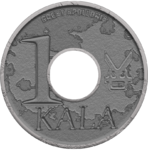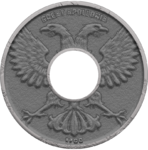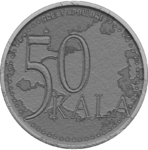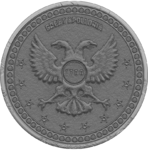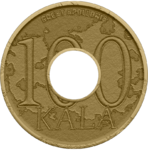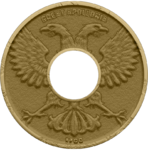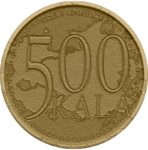Apollonian golden kala: Difference between revisions
m (Malliki moved page Golden Kala to Golden kala) |
|
(No difference)
| |
Revision as of 13:41, 22 January 2022
| Apollonian golden kala | |
 | |
| Denominations | |
|---|---|
| Symbol |
|
| Banknotes |
|
| Coins |
|
| Demographics | |
| User(s) |
|
| Unofficial user(s) |
|
The Golden Kala (Adarani: स्वर्ण कला; Jingdaoese: 金卡拉), abbreviated to GK, is the official currency of the Great Apollonian Empire. The idea was officially introduced and launched in 1700 AN, after a financial meeting in Apollonium, D.A. between state representatives, the Imperial Chancellor Zhang San and the Tobu Emperor. It serves as valid currency within Great Apollonian borders and is used by over one billion citizens for their daily necessities and economic activities.
The Golden Kala is issued by the Bank of Great Apollonia, which was established with the sole purpose of regulating the minting process and distribution of the newly established currency. Its value is backed with gold from the Dalmacijan Imperial Gold Reserves (DIGR).
History
Production and minting
The production of the Golden Kala is in hands of the state owned Apollonia Minting and Printing Association and overseen by the Bank of Great Apollonia. As the introduction of the new coinage and banknotes had to replace the old national currencies in a short amount of time (the government planned to introduce the Golden Kala in 1702, only two years after its initial creation), a number of several printing, engraving and minting facilities were established around the country to produce banknotes and coins for subsequent distribution.
Banknote printing facilities and mints were established in Houhangye, Daocheng, Xiacheng, Agra, Maulikpur and Manbai.
Banknotes
| Obverse | Reverse | Value | Description | Date of issue |
|---|---|---|---|---|
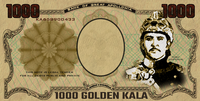 |
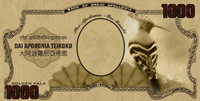 |
The hoopoe, the national bird of the Empire. One of the few animals one can come across in both the western and eastern states. | 1702 AN. | |
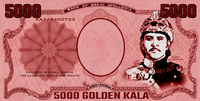 |
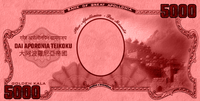 |
The Red Fortress in Agra, seat of the Emperor. | 1702 AN. | |
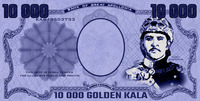 |
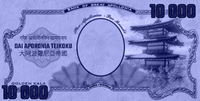 |
The pagoda of the Temple of Worship, Daocheng. | 1702 AN. | |
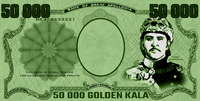 |
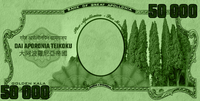 |
The national tree of the Empire, the Apollonian cypresses, at the entrance of Nanxing Canyon, Xianxia Province. | 1702 AN. |
Coins
Every coin has the date engraved on which the Golden Kala was - for the first time - established as national currency.
